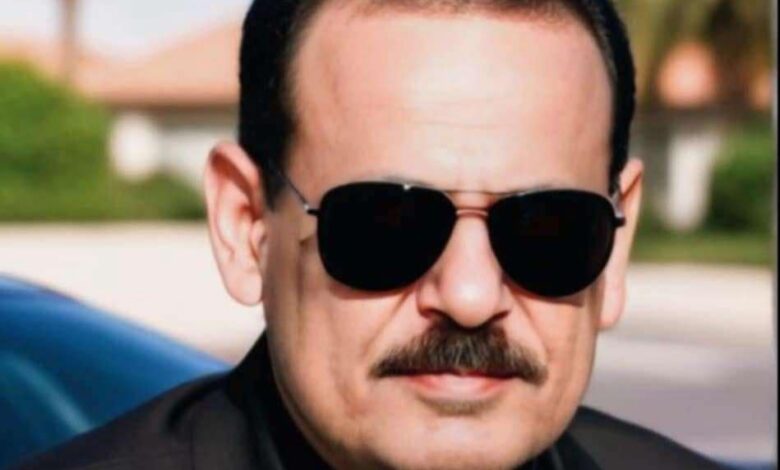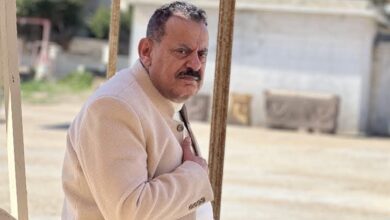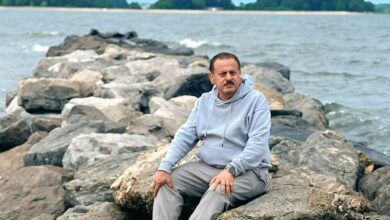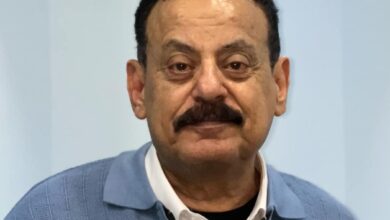A Retreat from Suicide

Yemeni mp
Ahmed Saif Hashed
I let my thoughts flow in every direction, conversing with myself: suicide is a painful, regrettable, and tragic decision, not just for me, but also for my family who loves me. They feel discontent and dissatisfaction with my father’s well-known harshness and cruelty, though I cannot deny his love and fatherhood.
I feel an urgent need to express my deep discontent and strong protest to my father, leading him to a profound regret that will compel him to reflect, experiencing a pain that should touch only him. This regret and pain must not extend to anyone else.
I must do something that harms only my father, as I reconsider my impulsive decision to commit suicide. I need to retract the tragedy I had intended, which would undoubtedly inflict a heavy blow on my family that they cannot withstand.
I must move away from what I resolved in a moment of heightened emotion. I want to do something different, adventurous, and risky, but it must come at a lower cost than taking my own life, which, if lost, will never return. Nothing could be worse than the separation from those I love.
The instinct for survival also leaned toward rejecting the decision of suicide. I found it clinging to life more fiercely than before, battling within me. This instinct stirred deeply, rallying its forces and guiding me toward a path other than what I had determined. My decision weakened until it culminated in my retreat from what I had planned.
It is not easy for a child to resolve to commit suicide unless they have reached a breaking point, enduring ongoing harm and suffering that has peaked. Yet, the instinct for survival continued to wrestle with my thoughts, offering justifications, echoing what my mother used to say: “You are still new to life, which will balance and change in your favor one day.
There is still a long journey ahead, and change will come. Be patient… just a little patience… endure until you can bear it and grow stronger, and you will free yourself from your father’s cruelty. God will open a thousand doors for you.”
Then, the instinct for survival urged me toward a less severe action; it suggested I could find a way to annoy my father that would involve less loss and cost to me and my loved ones. The loss forever is something I cannot bear, nor can my mother and sisters.
I remind myself: if I kill myself, I will certainly destroy my mother with grief and regret. I will miss my sisters for eternity, extending to the Day of Judgment. I will burden them with immense sadness and the pain of loss for the rest of their lives. None of them can endure such a great calamity.
I continue to think: it is impossible for me to kill my father. Who will support our large family after him if I were to take his life? Where will I escape from the shame that will tarnish my entire existence? The deeper regret that would inevitably follow would only worsen my situation. I would end up doing what I sought to escape twice: once by executing my father and again by taking my own life. The consequences of both would be dire for my exhausted family. It is a foolish decision that entails a double loss. No… no… this is an impossible option that I must not pursue. Here, I can blame the “devil” within me for the whisperings urging me toward something heavier and more devastating.
In truth, I want another action that is less costly but still noisy enough to express my feelings and my rejection of my father’s oppression. This can only be achieved through an act that is loud and filled with rebellion and protest. I want my father to regret his actions filled with cruelty. I want him to hear some of my madness as a protest against his oppression. I want to return some of his madness to him in a way that is possible, without taking any life.
I cannot swallow my anger and remain silent like a stone or a log. I must do something to express the utmost protest I can muster, but without resorting to suicide. I want, in some way, to punish my father and make him hear my defiant protests. He must feel my injustice and the suffering he has caused me, and it is fine for everyone to hear my story. I want my father to regret his excessive cruelty toward me. My anger surged again within me, and the blood rekindled its rage, boiling in my veins. I need to release the pent-up frustration and rebellion inside me.
* * *
I left my room and stopped by the door to ensure it was securely locked. Then, I went up to the living room. I placed an empty ” Tahoony ” box, vibrant in its green color, against the opposite wall and secured it with a knife in a hole in the wall. In front of me, I created a makeshift “box” from wooden planks that were once used to transport gas canisters on camels.
I lay down behind it and tried to stabilize the rifle against the wooden planks to reduce recoil when firing. I stretched my legs in a combat position that felt foreign to me, though it was etched in my mind from images I had seen in Chinese and Russian magazines that I had previously obtained from my brother, who belonged to the Revolutionary Democratic Party, and my companion Abdulbasit, brother of Mohammed Saeed Ghalib, who was part of one of the national factions led by Abdullah Abdulrazzaq Ba’thieb.
I knew that the rifle would push the shooter back upon firing, so I needed to stabilize it to minimize recoil. I aimed at the box I had placed on the wall, my finger ready on the trigger with the safety off. As soon as I pressed the trigger, shots were fired rapidly.
I had no idea that the dust would accumulate inside so densely and for what felt like an extended period. I didn’t realize that the bullets would damage the walls! I don’t know how I survived! Perhaps “Al-Khidr,” whom my father had forbidden me from visiting, was with me, or maybe it was just sheer luck.
I was unaware that the sound of gunfire and the thick dust would be so intense that anyone outside the house, hearing the gunfire within, would think an earthquake had struck. The smell of gunpowder filled the air.
In the chaos of dust, I tried to find the “Tahoony” box I had aimed at, and I found it untouched, with the knife still lodged in the wall. I was shocked and puzzled that I had failed to hit the target, despite being only four meters away. It was a rapid shot from “zero” distance; I had survived, and so had the target, while everything else was hit. Women, men, and children rushed to the house to see what had happened! The first to arrive was our neighbor, Mani Saeed. The door was locked, and I reassured everyone from the living room that nothing had happened and that I was unharmed.
People gathered at our door, their questions overlapping, their expressions marked with concern. Some pounded on the door forcefully, threatening to break it down, while my mother rushed from the well to our house, acting like a madwoman, screaming and crying with a heart torn apart by grief!
I came down and opened the door, reassuring everyone that I was fine, while my mother searched my body and clothes to see what I had done to myself. When she confirmed my safety, she took me to hide from my father in another room of the house—a dark space filled with bundles of dry plants. My father had rushed from the head of “Sharar,” perhaps to take revenge on me, but he didn’t find me. My mother informed him that I had fled to the mountain.
* * *
I stayed for two days in my secret hideout, finding comfort only in my mother’s presence and her bread. Yet, I couldn’t escape the postponed punishment, nor could my mother avoid a hundred questions and problems.
During those two days, I felt that I had grown tired of my hiding place, and it had grown tired of me. Whirlwinds of anxiety built up inside me, and fierce nightmares haunted my sleep. A heavy weariness weighed down on me, and a deadly loneliness intensified in the pitch-black night. I asked my mother to let me sleep among my sleeping siblings, promising to return to my hideout quietly before dawn without being seen by my father. But my plan was revealed after an hour. Oh, how disappointing my attempt and my mother’s attempt were!
Around ten at night, my father passed by my sleeping siblings, who were deep in slumber. I was the only one among them who was alert and anxious, barely hearing the sound of ants. I had no idea what had caught my father’s attention despite our stillness. I don’t know which devil informed him that I was likely present there, among those who slept.
I heard him count those present, saying to my mother: “There’s one extra.” She tried to cast doubt, maneuvering to redirect him to another topic; but my father knelt down among us, began to feel with his fingers, counting heads and naming them for my mother. My mother trembled in fright, trying to quietly read Surah Yasin, while my father counted and touched the heads. When he reached mine, he recognized me and began to pound me into the ground like a hammer.
My mother lunged at him like a wolf, and they began to fight, while my terrified siblings and the sounds of the struggle filled the village and its surroundings. The screams tore through the calm of the night, creating confusion and fear among the people of our village and beyond.
I seized the opportunity during the scuffle between my father and mother and managed to escape. I ran and jumped off the house. It was a risky move, but fear and panic created a miracle. Perhaps the adrenaline released by my adrenal glands in such a situation spared us from potential harm.
* * *






